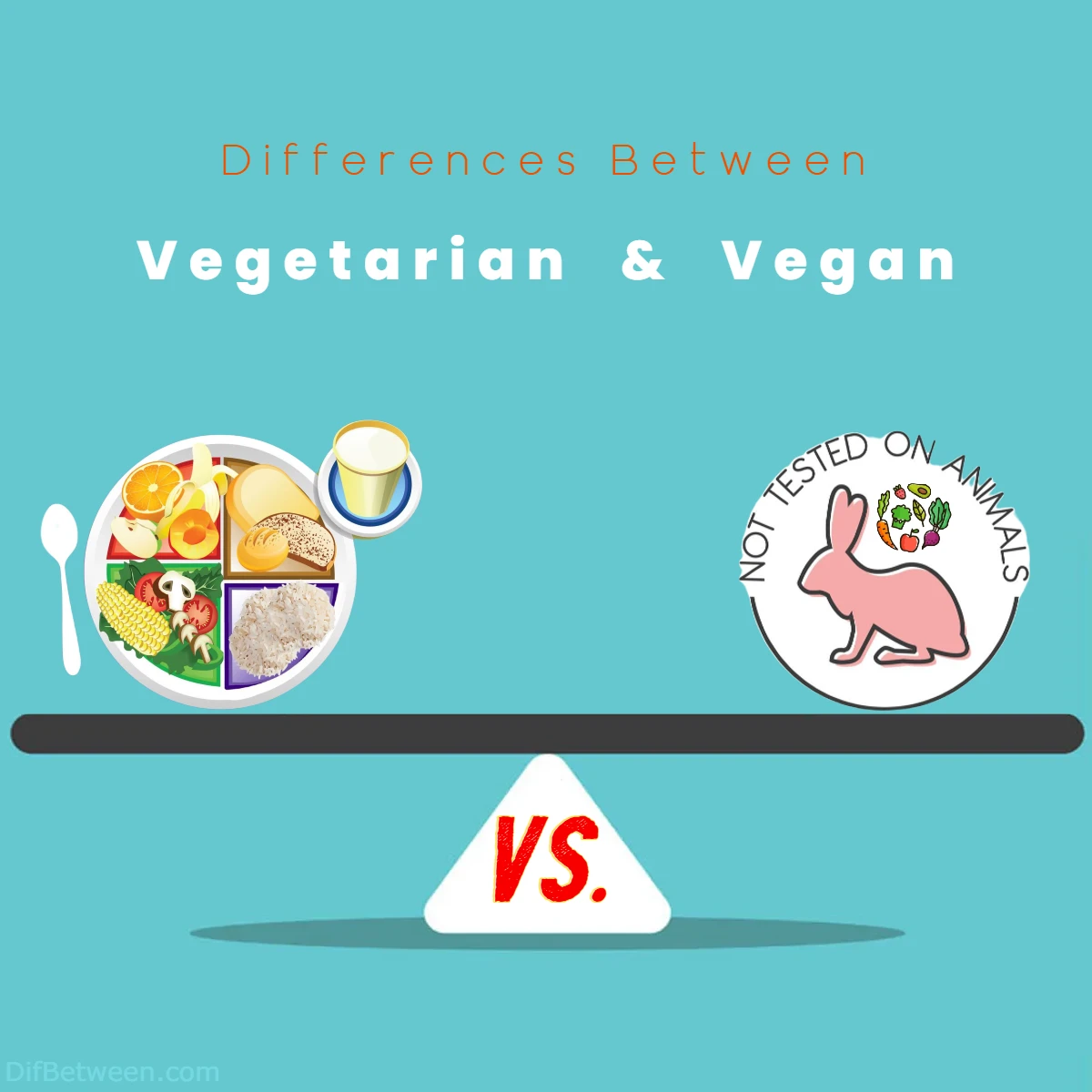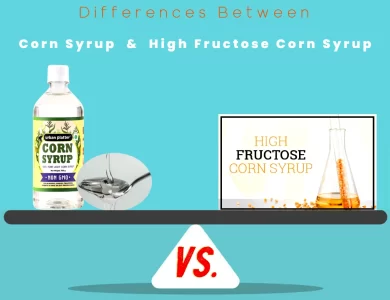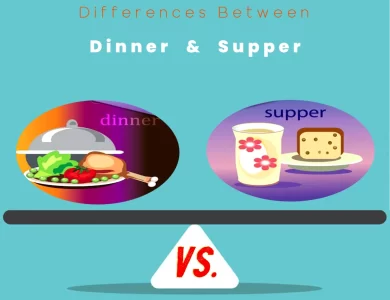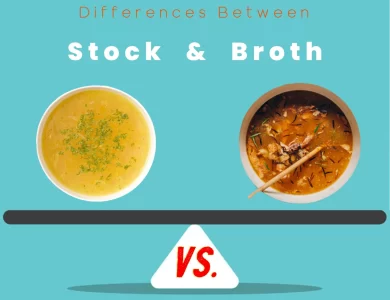
| Aspect | Vegetarianism | Veganism |
|---|---|---|
| Definition | Diets that avoid meat, but allow certain animal products like dairy and eggs. | A lifestyle that excludes all animal products, including meat, dairy, eggs, and honey. |
| Dietary Categories | Lacto-Ovo Vegetarian: Consumes dairy and eggs. <br> Lacto Vegetarian: Consumes dairy, no eggs. <br> Ovo Vegetarian: Consumes eggs, no dairy. <br> Pesco Vegetarian (Pescatarian): Consumes fish and seafood. | Excludes all animal products, including meat, dairy, eggs, and any other animal-derived ingredients. |
| Ethical Focus | May prioritize health, dietary preferences, or gradual reduction of animal products. | Focuses on animal rights, ethical considerations, and minimizing animal suffering. |
| Nutritional Sources | Relies on dairy and eggs as sources of protein, calcium, and certain vitamins. | Relies on plant-based sources of protein, vitamins, and minerals, often supplemented with fortified foods. |
| Nutrient Considerations | Generally easier to meet nutrient needs due to inclusion of dairy and eggs. | Requires careful planning to ensure adequate intake of nutrients like B12, omega-3, iron, and zinc. |
| Health Implications | Associated with reduced risks of chronic diseases due to plant-rich diet. | Similar health benefits, but requires more vigilant nutrient planning to avoid deficiencies. |
| Environmental Impact | Reduces environmental impact compared to omnivorous diets, but still involves animal agriculture. | Significantly reduces environmental impact by avoiding all animal products, including dairy and eggs. |
| Social Dynamics | Offers more flexibility and social ease due to broader food choices. | Might present challenges in social situations due to stricter dietary restrictions. |
| Ethical Statement | Reflects personal dietary choices and gradual reduction of animal consumption. | Makes a strong ethical statement against animal exploitation and cruelty. |
| Culinary Options | Encompasses a wide variety of dishes, including those with dairy and eggs. | Encourages creative cooking with plant-based alternatives, leading to unique flavors and textures. |
| Advocacy and Education | May not actively advocate for animal rights or environmental concerns. | Often engages in advocacy, raising awareness about animal welfare and sustainable living. |
As we journey through the rich terrain of differences between vegetarianism and veganism, you’ll uncover a treasure trove of insights that will guide you toward a choice that aligns perfectly with your unique aspirations. Ready to navigate the intricacies of dietary decisions? Keep reading to explore the comprehensive spectrum of plant-based living and unearth the path that beckons you. Your plate, your principles, and your planet await your conscious choice!
Differences Between Vegetarian and Vegan
The main differences between vegetarianism and veganism lie in their dietary exclusions. Vegetarians abstain from meat consumption while often including dairy and eggs, whereas vegans take a more comprehensive approach by excluding all animal products, including meat, dairy, eggs, and even honey. This distinction is rooted in varying motivations: vegetarians may prioritize health or gradual reduction of animal products, while vegans are driven by ethical considerations, animal rights, and environmental sustainability. Nutritional implications also diverge, with vegetarians having easier access to protein and certain nutrients from dairy and eggs, while vegans must carefully plan their diets to ensure they meet essential nutrient requirements.
Philosophy and Core Principles
Vegetarianism: A Spectrum of Choices
Vegetarianism, a dietary practice with historical roots dating back centuries, embodies a spectrum of dietary choices that primarily avoid the consumption of animal flesh. Within this realm, various subcategories exist, each allowing for differing levels of animal product inclusion. Here are some prominent types of vegetarians:
- Lacto-Ovo Vegetarian: This is a commonly observed category where individuals abstain from consuming meat, poultry, and fish, but still embrace dairy products and eggs in their diet.
- Lacto Vegetarian: Lacto vegetarians eliminate meat, poultry, fish, and eggs from their diet, but continue to consume dairy products such as milk, cheese, and yogurt.
- Ovo Vegetarian: Ovo vegetarians eschew meat, poultry, fish, and dairy, while incorporating eggs into their dietary repertoire.
- Pesco Vegetarian: Sometimes referred to as pescatarians, these individuals avoid meat but allow fish and seafood as part of their diet.
Veganism: The Ethical and Compassionate Stance
Veganism, a term coined in the mid-20th century, represents a more rigorous and comprehensive lifestyle rooted in ethical and environmental concerns. It extends beyond dietary choices, encompassing a profound commitment to excluding all forms of animal exploitation and cruelty. In addition to avoiding meat, poultry, fish, and dairy, vegans extend their principles to exclude other animal-derived products such as honey, gelatin, and certain additives. This all-encompassing stance aims to minimize animal suffering and reduce humanity’s ecological footprint.
Dietary Restrictions and Nutritional Considerations
Vegetarian Diet: Balancing Choices
For many, the transition to a vegetarian diet can be relatively seamless, as it still permits a wide range of food choices. Dairy and eggs, for instance, are excellent sources of protein, vitamins, and minerals. Vegetarians can find essential nutrients like vitamin B12, calcium, and omega-3 fatty acids in these products, helping them maintain a balanced diet. However, careful planning is crucial, as relying heavily on dairy and eggs could lead to excessive saturated fat intake and potential nutrient deficiencies. Thus, incorporating an array of vegetables, fruits, whole grains, legumes, nuts, and seeds is pivotal for a wholesome vegetarian diet.
Vegan Diet: Navigating Nutrient Terrain
Embracing a vegan lifestyle necessitates more meticulous attention to nutritional intake due to the exclusion of all animal-derived products. While it might seem challenging, a well-planned vegan diet can be nutritionally adequate and offer numerous health benefits. Vegans rely on plant-based protein sources such as beans, lentils, tofu, tempeh, quinoa, and seitan. Essential nutrients like vitamin B12, which is mainly found in animal products, must be obtained through fortified foods or supplements. Calcium-rich alternatives like fortified plant-based milk and leafy greens, alongside omega-3 sources like flaxseeds and walnuts, play a crucial role in maintaining optimal health.
To aid in understanding the nutritional distinctions between vegetarian and vegan diets, let’s delve into a comparative table:
| Nutrient | Vegetarian Sources | Vegan Sources |
|---|---|---|
| Protein | Dairy, Eggs, Legumes, Nuts, Seeds | Legumes, Nuts, Seeds, Tofu, Tempeh |
| Calcium | Dairy, Fortified Foods, Leafy Greens | Fortified Plant Milk, Leafy Greens |
| Vitamin B12 | Dairy, Eggs, Supplements | Fortified Foods, Supplements |
| Omega-3 | Eggs, Dairy, Fish, Flaxseeds | Flaxseeds, Walnuts, Algal Supplements |
Health Implications and Benefits
Vegetarianism: A Path to Wellness
Numerous studies have highlighted the potential health benefits of a well-balanced vegetarian diet. This dietary approach is often associated with reduced risks of chronic diseases such as heart disease, hypertension, type 2 diabetes, and certain cancers. The emphasis on plant-based foods rich in fiber, antioxidants, and healthy fats contributes to improved weight management and overall well-being. However, it’s important for vegetarians to make informed food choices to ensure they meet their nutrient requirements, as overindulgence in high-fat dairy products or processed vegetarian foods may undermine these potential health benefits.
Veganism: A Holistic Health Embrace
Vegans reap similar health rewards while embracing a broader ethical and environmental stance. Scientific research suggests that well-planned vegan diets can promote heart health, weight management, and reduced risks of chronic diseases. The abundant consumption of fruits, vegetables, whole grains, legumes, and nuts leads to enhanced nutrient intake and lower intake of saturated fats. Vegan diets are naturally cholesterol-free and can contribute to better blood sugar control. However, vigilance is necessary to ensure adequate intake of certain nutrients such as vitamin B12, omega-3 fatty acids, iron, and zinc. Supplementation or fortified foods are often recommended to address potential deficiencies.
Environmental Impact: A Sustainable Choice
Vegetarianism: A Reduced Footprint
Adopting a vegetarian diet can significantly reduce one’s carbon footprint and environmental impact. The livestock industry’s demands for land, water, and feed contribute to deforestation, water pollution, and greenhouse gas emissions. By excluding meat from their diets, vegetarians help decrease the demand for these resources. Additionally, the cultivation of plant-based foods requires less land and water, making vegetarianism an environmentally conscious choice.
Veganism: A Transformative Approach
Vegans take their environmental commitment a step further. Livestock production remains a major contributor to deforestation, species extinction, and climate change. By abstaining not only from meat but also from dairy and other animal-derived products, vegans amplify their positive impact on the planet. The reduction in greenhouse gas emissions, water usage, and land consumption is even more pronounced in a vegan lifestyle. Opting for plant-based alternatives to traditional animal products also encourages the growth of sustainable food industries that prioritize eco-friendly practices.
Culinary Adventures: Exploring Flavors and Creativity
Vegetarian Delights: A Feast of Variety
Vegetarianism celebrates the diverse world of plant-based cuisine, inviting individuals to savor a myriad of flavors and textures. With the inclusion of dairy and eggs, vegetarians have the flexibility to enjoy a wide range of dishes that mirror traditional favorites. From creamy pasta Alfredo to cheesy pizzas, the culinary landscape is rich and satisfying. Additionally, the use of dairy provides an avenue for experimenting with delectable desserts like custards, cakes, and ice creams. The inherent versatility of the lacto-ovo vegetarian diet allows for seamless integration into various cultural cuisines, making it an appealing choice for those who seek both familiarity and novelty in their meals.
Vegan Culinary Magic: Redefining Taste
Veganism encourages a creative reimagining of flavors and culinary traditions. The absence of animal products prompts a reevaluation of cooking techniques and ingredient combinations, leading to innovative and nourishing dishes. Plant-based alternatives like nut-based cheeses, plant milk, and tofu scramble have elevated vegan cuisine to new heights. The vegan culinary world extends to global dishes as well, with adaptations of traditional recipes that replace meat and dairy without compromising on taste. As demand for vegan options continues to rise, restaurants and food manufacturers are responding by offering an array of delectable plant-based alternatives, further enriching the vegan dining experience.
Social Considerations and Practicality
Vegetarian Lifestyle: Easing Social Navigation
Navigating social situations as a vegetarian often proves less complex compared to a vegan lifestyle. Many social gatherings and restaurants offer vegetarian options that cater to a broader audience. This inclusivity makes dining out and sharing meals with friends and family more seamless. However, it’s still important to communicate dietary preferences to ensure that the chosen options align with one’s values and preferences.
Vegan Lifestyle: Advocacy and Education
Vegans may encounter more challenges in social situations due to the more stringent dietary restrictions. While the growing popularity of veganism has led to an increasing number of vegan-friendly options, there might still be instances where finding suitable choices can be a bit more intricate. Nonetheless, many vegans embrace these challenges as opportunities for advocacy and education. By engaging in discussions about their choices, they raise awareness about animal welfare, environmental concerns, and the potential health benefits of a plant-based diet.
Ethical Stance: A Glimpse into Compassion
Vegetarian Ethics: Personal and Nutritional Considerations
For many individuals, the decision to adopt a vegetarian lifestyle may stem from personal health and nutritional concerns rather than solely from ethical considerations. While vegetarians abstain from consuming animal flesh, the inclusion of dairy and eggs can provide a sense of dietary familiarity and practicality. This choice allows for a gradual shift away from meat consumption while still deriving essential nutrients from animal-derived sources.
Vegan Ethics: A Comprehensive Commitment
Veganism embodies a profound commitment to animal rights, environmental sustainability, and ethical values. Vegans actively avoid all forms of animal exploitation, recognizing that the dairy and egg industries also contribute to animal suffering and environmental harm. This comprehensive stance aligns with the belief that every sentient being deserves respect and compassion. By removing all animal products from their lives, vegans make a definitive statement about their dedication to a more just and compassionate world.
Vegetarian or Vegan: Which One is Right for You?
In the captivating world of plant-based lifestyles, the choice between vegetarianism and veganism holds a significant place. These two paths share the common goal of reducing animal product consumption, but they differ in their level of commitment and the values they encompass. If you find yourself at the crossroads of deciding which path to embark on, let’s delve into the intricacies of both options to help you make an informed choice that resonates with your values, lifestyle, and aspirations.
Personal Values and Ethical Considerations
Vegetarianism: A Gradual Transition
If your journey toward a plant-based lifestyle is rooted in health concerns, dietary preferences, or a gradual shift away from meat consumption, vegetarianism might be your natural choice. The various forms of vegetarianism—lacto-ovo, lacto, ovo, and pesco—allow you to customize your approach to align with your values while maintaining some dietary familiarity. This could be especially appealing if you’re concerned about meeting nutritional needs or if you’re transitioning from a meat-centric diet.
Veganism: A Holistic Commitment
On the other hand, if your motivations extend beyond diet and encompass ethical considerations, environmental stewardship, and animal rights advocacy, veganism may resonate deeply with you. Veganism is more than a dietary choice; it’s a lifestyle that reflects a commitment to minimizing animal suffering and embracing a sustainable approach. By abstaining from all animal-derived products, you’re taking a comprehensive stand against animal exploitation and contributing to a kinder, more compassionate world.
Health and Nutritional Factors
Vegetarian Diet: Balanced Flexibility
A well-balanced vegetarian diet can offer a diverse array of nutrients while accommodating a broader range of food choices. Dairy and eggs provide accessible sources of protein, calcium, and vitamins, making it relatively easier to meet your nutritional requirements. If you’re looking for a flexible approach that prioritizes health while allowing for some animal-derived products, vegetarianism offers a balanced route.
Vegan Diet: Mindful Nutrient Planning
Embracing a vegan diet demands mindful nutritional planning to ensure you’re obtaining essential nutrients such as vitamin B12, omega-3 fatty acids, and iron. Plant-based sources of these nutrients are available, but supplementation or fortified foods might be necessary. A well-constructed vegan diet can be incredibly nutritious, promoting heart health, weight management, and reducing the risk of chronic diseases.
Environmental and Global Impact
Vegetarian Lifestyle: Conscious Consumption
Choosing a vegetarian lifestyle is a step toward reducing your environmental footprint, as it still lowers the demand for animal agriculture, a major contributor to deforestation and greenhouse gas emissions. By focusing on plant-based foods, you’re contributing to sustainable resource usage and decreased environmental impact, though not to the extent that veganism achieves.
Vegan Lifestyle: Transformative Change
Veganism represents a more transformative approach to environmental responsibility. By excluding all animal products, you significantly reduce your contribution to the environmental issues associated with animal agriculture. The reduction in land use, water consumption, and greenhouse gas emissions is more pronounced in a vegan lifestyle. If you’re deeply committed to addressing climate change and minimizing ecological harm, veganism aligns closely with these values.
Social Dynamics and Practicality
Vegetarian Living: Social Ease
Vegetarianism generally offers smoother social integration due to its flexibility. Many social gatherings and restaurants provide vegetarian options, making it easier to navigate dining out and sharing meals with others. If maintaining social connections and participating in various dining experiences are important to you, vegetarianism might be the more convenient choice.
Vegan Lifestyle: Advocacy and Adaptation
While the rise of veganism has led to increased availability of vegan-friendly options, it might still present social challenges due to its more stringent dietary restrictions. However, many vegans see these challenges as opportunities for advocacy and education. By choosing a vegan lifestyle, you actively engage in conversations about animal welfare, sustainability, and ethical considerations, inspiring others to make conscious choices.
Making the Choice: Your Journey Ahead
Ultimately, the decision between vegetarianism and veganism rests on your values, aspirations, and circumstances. Consider what drives your desire for a plant-based lifestyle—whether it’s health, ethics, the environment, or a combination of factors. Reflect on your capacity for nutritional planning, adaptability, and the degree of commitment you’re ready to embrace.
FAQs
The primary distinction lies in what is excluded from each diet. Vegetarians abstain from meat consumption but may include dairy and eggs. Vegans, on the other hand, exclude all animal products, including meat, dairy, eggs, and even honey.
People opt for a vegetarian lifestyle for various reasons, such as health concerns, dietary preferences, or a gradual transition away from meat consumption. Some may also appreciate the flexibility of including dairy and eggs while reducing their environmental impact.
Vegans are often driven by ethical considerations, animal rights advocacy, and environmental sustainability. They make a comprehensive commitment to excluding all forms of animal exploitation and cruelty, aligning their diet with their values.
Yes, there are notable differences. Vegetarians may find it easier to obtain certain nutrients like protein, calcium, and vitamin B12 from dairy and eggs. Vegans, however, need to be more mindful of their nutrient intake and often rely on fortified foods or supplements to meet requirements like vitamin B12 and omega-3 fatty acids.
Both lifestyles contribute to reducing environmental impact compared to omnivorous diets, but veganism has a more pronounced effect. By excluding all animal products, vegans significantly reduce land use, water consumption, and greenhouse gas emissions associated with animal agriculture.
Vegetarians may find it slightly easier to navigate social situations due to the broader range of food choices, including dairy and eggs. Vegans may encounter more challenges, but many use these moments as opportunities for advocacy and education about their lifestyle choices.
Both diets can be nutritionally adequate with proper planning. Vegetarians have more sources of certain nutrients from dairy and eggs, while vegans can obtain nutrients from various plant-based foods and fortified products. Consulting a registered dietitian can help ensure balanced nutrient intake.
Yes, transitioning from a vegetarian to a vegan lifestyle is possible. It requires adjusting your diet to exclude dairy and eggs while incorporating more plant-based protein sources, fortified foods, and supplements to address potential nutrient gaps.
Both lifestyles offer health benefits, such as reduced risks of chronic diseases. However, a well-balanced vegan diet, with careful attention to nutrient intake, can provide similar health advantages while aligning with ethical and environmental concerns.
Your decision should reflect your values, health considerations, and personal preferences. Consider your motivations, willingness to plan meals, ethical stance, and the impact you wish to make on animal welfare and the environment to guide your choice.
Read More:
Contents






